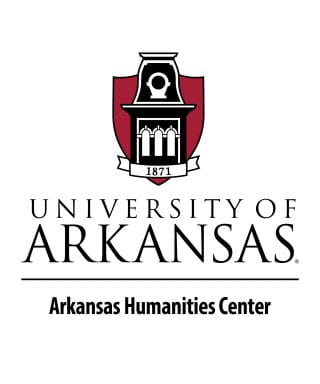U of A Forms New Arkansas Humanities Center, Names Center Leadership

A Gothic revival-style library at Strawberry Hill in Twickenham, England, which dates to the 18th century and was created by architect and owner Horace Walpole.
The University of Arkansas has established a new research center — the Arkansas Humanities Center — and named new leadership and steering committee members for the center.
The center will support faculty research in the humanities disciplines of the J. William Fulbright College of Arts and Sciences — communication, English, history, journalism, philosophy, and world languages, literatures and cultures.
DIRECTOR TRICIA STARKS
Professor Tricia Starks will serve as the center’s director, taking over from professor Kathryn Sloan, who supervised the center’s creation and was appointed the U of A’s vice provost for faculty affairs in October.
“I am excited to foster humanities scholarship and bring that research to the community,” said Starks, whose own research is in the history of Russian and Soviet public health. “Humanities research helps us to consider our actions informed by knowledge of the past, culture and context.”
The new center can trace its beginnings back to a 1980s National Endowment for the Humanities Grant, which encouraged interdisciplinary teaching and research at the U of A, founded the Honors Humanities Project (H2P), and gave development funds to Gender Studies, the Tesseract Center for Immersive Environment and Game Design, and other interdisciplinary programs.
Starks said her work with the new medical humanities minor has shown her that ethical issues informed by history and culture surround our interactions with medicine and science.
“Humanities are the basis of a better functioning, more equitable, and more just society,” Starks said.
ASSOCIATE DIRECTOR LISSETTE LOPEZ SZWYDKY-DAVIS
 Assistant professor Lissette Lopez Szwydky-Davis of the Department of English will join Starks as associate director for the center. As a recent co-recipient of a $160,000 National Endowment for the Humanities Grant, she will work to bring the university’s humanities expertise to the community.
Assistant professor Lissette Lopez Szwydky-Davis of the Department of English will join Starks as associate director for the center. As a recent co-recipient of a $160,000 National Endowment for the Humanities Grant, she will work to bring the university’s humanities expertise to the community.
Szwydky-Davis co-directs the NEH Summer Institute for K-12 Educators “Remaking Monsters and Heroines: Adapting Classic Literature for Contemporary Audiences” along with associate professor Sean Connors of the Department of Curriculum and Instruction in the College of Education and Health Professions.
Szwydky-Davis said that her research on the adaptation of literature informs all of her work.
“Like the core content of the Summer Institute, my work highlights the importance of interdisciplinarity, collaboration and public outreach, all of which are critical to the future of the humanities, as well as to the success of all academic disciplines,” she said.
In her work for the center, Szwydky-Davis focuses on career education, professional development and preparing humanities majors for jobs.
“All professions in all industries benefit from hiring graduates with strong training in the humanities,” she said. “The skills cultivated most in these disciplines include strong written and oral communication, critical thinking, creativity, empathy, and the ability to work in and with diverse groups.”
STEERING COMMITTEE
As part of the transition, the Arkansas Humanities Center also has a new Steering Committee. The members include:
- Sean Connors – Department of Curriculum and Instruction
- Casey Lee Kayser – Department of English
- Violeta Lorenzo-Feliciano – Department of World Languages, Literatures and Cultures
- Amanda Kathleen McMullen – Department of Philosophy (starting fall 2020)
- Charles E. Muntz – Department of History
- Ram Natarajan – Department of Anthropology
- Niketa S. Reed – School of Journalism and Strategic Media
- John Stanly Walch – Department of Theatre
- Ron Warren Jr. – Department of Communication
For more information, visit the Arkansas Humanities Center online and follow the center on Facebook.
About the University of Arkansas: The University of Arkansas provides an internationally competitive education for undergraduate and graduate students in more than 200 academic programs. The university contributes new knowledge, economic development, basic and applied research, and creative activity while also providing service to academic and professional disciplines. The Carnegie Foundation classifies the University of Arkansas among fewer than 3% of colleges and universities in America that have the highest level of research activity. U.S. News & World Report ranks the University of Arkansas among its top American public research universities. Founded in 1871, the University of Arkansas comprises 10 colleges and schools and maintains a low student-to-faculty ratio that promotes personal attention and close mentoring.
A version of this story also appeared in the U of A’s Newswire publication.
Andra Parrish Liwag
Director of Communications, J. William Fulbright College of Arts and Sciences
479-575-4393 // liwag@uark.edu

